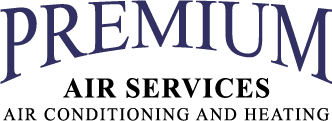Buying your first home is exciting. You’re probably juggling numerous details about making the right choice. We believe that understanding your future HVAC system is crucial. The property’s HVAC system represents a substantial investment and potential source of long-term costs, so being thorough should be a top priority for first-time homebuyers.
In the following guide, we’ll share seven tips for learning everything you can about a home’s heating and cooling setup. And if you want a more in-depth opinion from the pros, don’t hesitate to contact Premium Air Services LLC. Our experienced team can share details about your options with industry insights that are second to none.
1. What HVAC System Are You Working With?
Start by clarifying what specific HVAC system the home features. Furnaces tend to last longer than air conditioners, and newer types of HVAC equipment like heat pumps feature average life spans that are even longer. Tracking down the make and specific model ensures you have a clear idea of how much maintenance it will require.
2. How Long Ago Was the System Installed?
Another good idea is to find out how old the HVAC system is when you’re looking at a potential new home. For the most part, HVAC systems should survive for around 10-12 years. Having the knowledge of when it was installed helps you prepare for any needed servicing or when it might break down. Older systems may be more vulnerable to problems, so budgeting for a replacement unit might be needed faster than expected.
3. Is the Warranty Still in Effect?
Check if the HVAC system is still under warranty. If it is, that’s great news because it can lighten the load for maintenance expenses. HVAC warranties often cover parts and labor, but specifics will vary. Make sure you go over any terms that seem confusing to make sure you fully understand your coverage and the likelihood of out-of-pocket costs.
4. Does the System Have a Documented Maintenance History?
Take a close look at the maintenance history of the HVAC system, if the records are available. This service history can demonstrate if there have been regular problems or how much upkeep was provided. Ask about records for key tasks like filter changes, which can indicate it received regularly scheduled tune-ups.
5. What Are the Energy Efficiency Ratings?
Finding a home that features an HVAC system with high energy efficiency means more manageable utility bills and less of an impact on the environment. Locate the seasonal energy efficiency ratio (SEER) ratings for air conditioning as well as the annual fuel utilization efficiency (AFUE) for furnaces. Higher SEER ratings mean better cooling across the entire season, while strong AFUE ratings mean the fuel is more effectively burned for useable heat.
6. Have You Noticed Signs of Problems After Completing an Informal Inspection?
Even without heating and cooling expertise, it’s still a good idea to examine the HVAC system yourself. Watch closely for signs of problems that might have been overlooked. This can mean bizarre noises, spots with uneven heating or cooling and attempts at concealing any visible damage.
7. Is an Experienced HVAC Technician Available to Help?
If you’re still hesitant to make an offer because of the current state of the HVAC system, it’s beneficial to get an assessment and recommendation from trained HVAC professionals. They will be much more likely to catch things you might not, including refrigerant leaks, damage to the wiring or flawed ductwork.
A Chat with Premium Air Services LLC Simplifies Your Home-Buying Journey
Choosing your first home should be thrilling, and Premium Air Services LLC can ensure that doesn’t change. Connect with us at 713-364-9957. We can go over the details about how our HVAC services help make this process smoother, giving you what you need to make an offer with confidence.
